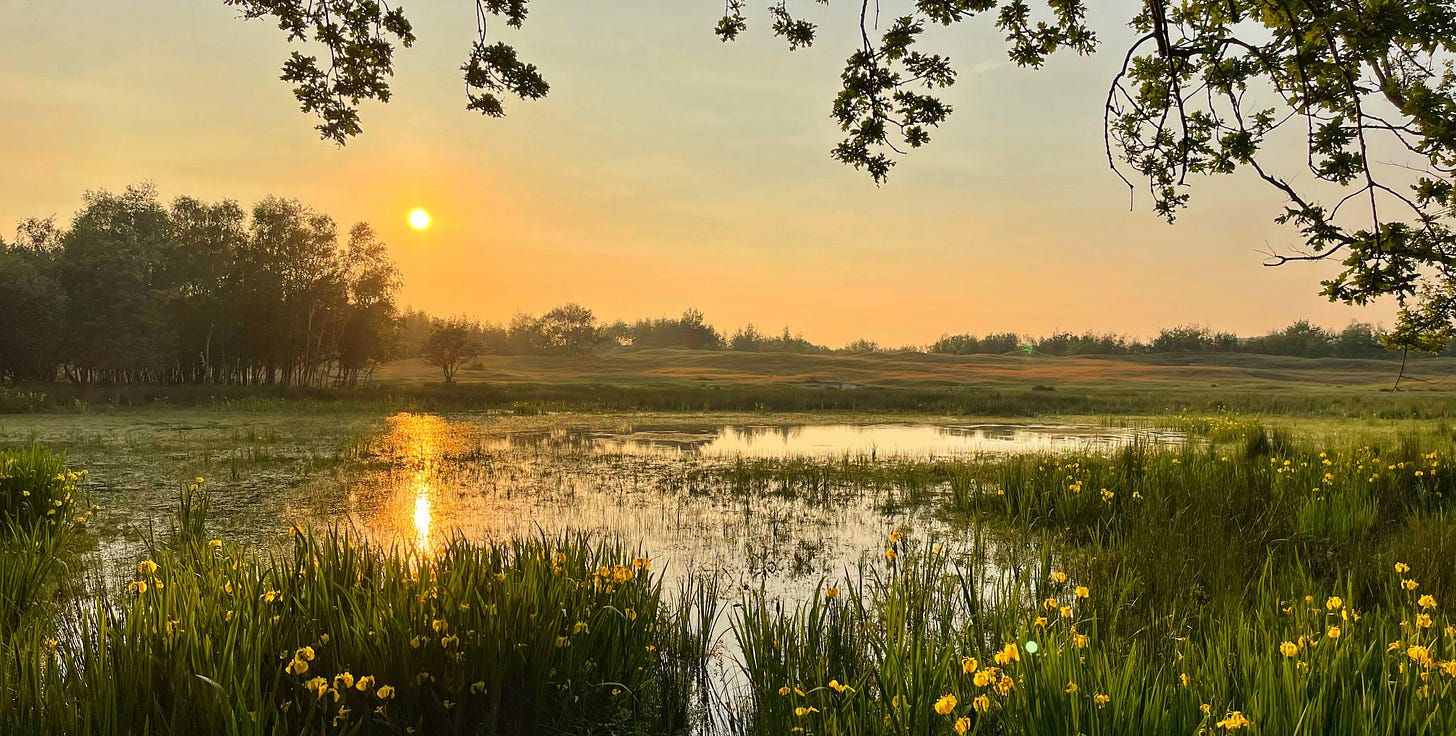You can't escape climate change
Island Stories #29: Even on my island climate change impacts have arrived
There is hardly any news broadcast on television this summer without items on the devastating impact of extreme weather on people and nature. Think of the record-breaking heatwaves, droughts, and wildfires in the U.S. and Canada. This week we saw the extreme rainfall-caused flooding events in Europe, India, and China, followed by today's news about wildfires in southern Europe.
Yesterday, the Secretary-General of the United Nations, António Guterres, called again upon the G20 and other world leaders to present more ambitious national climate action plans aligned with a net-zero future. He had urged them to increase their efforts many times before, and since hardly a day passes without his warnings, it is likely that he will do so again today or tomorrow.
Regional extremes
Guterres is right; the world needs more ambitious climate action plans and therefore requires more ambitious leaders to secure the living conditions on the planet as we know it. According to Carbon Brief's State of the Climate, this year is now on track to become somewhere between the fifth and seventh warmest year for the Earth's surface since records began in the mid-1800s. What is more worrying is the regional extremes that we are witnessing all over the world.
The calls from the UN Secretary-General, climate scientists, climate activists, and increasingly from people worldwide that only years ago hardly thought about climate change have been ignored by the G20 environment ministers that met in Naples last week. The ministers could not agree on phasing out coal or removing subsidies for fossil fuels because of opposition from countries like Russia, China, India, and Saudi Arabia. Let us hope that our world leaders will agree on more ambitious climate action at the COP26, the climate summit in Glasgow in November this year. After all, time is running out, and the lack of agreement on even the most essential steps to halt climate change is deeply worrying.

I retreated this summer to the Dutch island of Schouwen-Duiveland in the southwestern province of Zeeland. Readers of this newsletter know that I have described this island as the place in the world where I feel most at home. Having worked for decades on global issues and future threats, it feels like a break from work to focus on the local history of an island that most readers had never heard of before. My family lives here, and the oldest ancestor that I could trace back, Thomas Verbeek, was born here in the island's capital Zierikzee around 1750. On this quiet island, surrounded by beautiful nature, I feel detached from a world suffering from extreme weather in so many places. Still, I am well aware that the floods in Germany, Belgium, and the southeast of the Netherlands are just a few hours driving from here.
And while so many people worldwide experience this summer climate grief and try to come to terms with the loss of local nature, fresh air, and predictable weather, I feel grateful that my corner of the planet has been spared from disasters in these past few years. After three dry springs and summers, we now have average conditions, and the dunes close to home are very green again. The small ponds have filled up with water, flowers are blooming, and the semi-feral ponies enjoy walking knee-deep in the water.
Long before noticeable man-made climate change, the island of Schouwen-Duiveland had experienced a long history of devastating floods. The permanent battle between the land and the sea impacted the people and the island's economy. After massive flooding in 1953, when more than 1800 Dutch people drowned in the southwest of the Netherlands, the government decided on a decades-long program of building dikes and infrastructure to defend Zeeland and the southwest of the Netherlands against the sea. In today's climate-speak, we would call it adaptation measures. Not that climate change was to blame, it was mostly a combination of extreme weather with a lack of dike maintenance during and directly after the war. The investment in infrastructure provided safety against future floods and resulted in a better economy, faster connections, and more tourism.
Climate change is visible on the island
But like everyone else on the planet, we are not immune to the devastating impact of climate change. The inhabitants of this island are lucky this summer, but we do see the island changing because of climate change. Some are gradual, like birds that no longer visit the island in winter because their northern locations stay warm enough. However, the weather extremes are the biggest challenge for local plants and animals; will they adapt to survive the new conditions? In the past years, we lost a lot of fish and water birds to the drought. And like anyone living in a sea-delta, there is the awareness that someday all that I see around me will be underwater. It might still take centuries, and the Dutch are known as some of the best water experts in the world, but there is a limit to the amount of sea-level rise that we can handle.
Long before that day arrives, people elsewhere in the world, such as Bangladesh, have to decide to stay or leave their homes. For thousands of people, today may be the day that they finally give up and leave their houses behind to move to higher and drier grounds. Their ordeal won't be an issue on the news broadcast on your television; they just quietly join the unseen ranks of the millions of climate-displaced people.
Please subscribe: start your day with this newsletter and support independent writing.
Notes:







Thank you for sharing the beauty of your island while also focusing people's attention back to climate change. That beauty is what's at stake. This past year has brought a lot of changes for everybody, but I could always rely on spending time in nature to recharge my batteries.
Last night I went for a bike ride and I rode across the river Aare for the first time in weeks. There had been some flooding along the river, but thanks to our government deciding to give space back to the river and creating areas that are meant to flood if there is too much water, we were lucky. Those were such important lessons learned after the flooding of 1999 (I believe that was the year). I feel extremely lucky that we get to elect our leaders and that I live in a country that has the resources to protect and support its citizens if/when disaster strikes.
Thinking about the crisis in Bangladesh not making headline news and those people having nowhere to go - I can't even imagine what that must feel like. I think it was you who mentioned it in a previous newsletter that displacement of people and the security issues attached to that will soon become one of the world's biggest problems associated with climate change.
Thank you for sharing the beauty of your island home and taking a thoughtful journey through the myriad concurrent climate realities unfolding around us. Admiring and working to preserve the remarkable resilience of nature helps encourage us. I joined a discussion on climate change challenges to the cultural identity and sovereignty of Pacific atoll nations. Like the Bangladeshis, some will soon need to leave.. I hear the wildflowers of Western Australia are spectacular, following record-breaking rain, & the Great Barrier Reef is off the endangered list - for this year.. This world is worth protecting - for the sake of all!